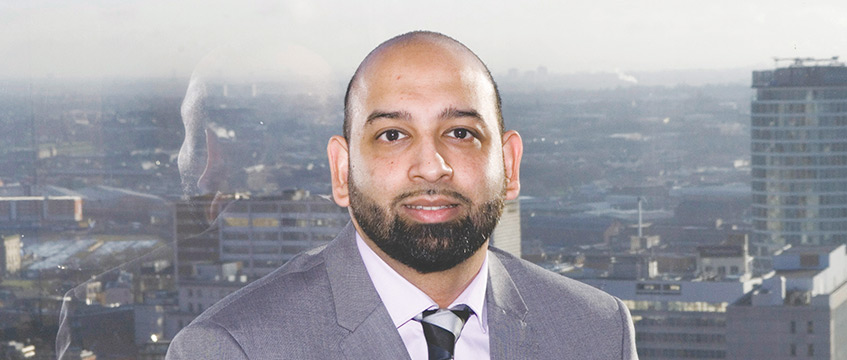COMMENT: The way we plan and develop our towns and cities is about to undergo a fundamental change. We need a clear trajectory for national infrastructure, a response to climate change, plans for skills and training, and a mechanism to address our country’s affordable housing shortage.
These are just some of the headlines, and they emphasise that in all areas we need to be planning and acting on them now.
For starters, the recent announcements in relation to HS2 are not helpful. Regardless of the narrative, HS2 – and by this I mean the whole network connecting north to south through Birmingham – needs to be delivered as a critical piece of infrastructure that will not only bring greater capacity and better connectivity but also improved economic productivity.
Short-termism will not provide the answers for the challenges we face.
Population growth and the resultant demand for homes, jobs, food, energy and facilities, coupled with environmental, economic and societal changes, are placing greater pressure on our systems.
This is all happening in the context of ageing infrastructure, stretched budgets, environmental and political imperatives for change and rapidly advancing technology.
An inclusive agenda will need to be coupled with the creation of an environmental legacy and the adoption of more sustainable, resource-efficient approaches. In responding to this, we need to ensure that we continue to deliver places where people can live, work and spend their leisure time.
An inclusive agenda will need to be coupled with the creation of an environmental legacy and the adoption of more sustainable, resource-efficient approaches
We need to evolve and adapt at an ever greater pace. But there is hope – we are innovative, and have found solutions before. In the world of planning and regeneration, we are used to taking decisions that look beyond a five-year window.
In Birmingham, we have been pursuing an agenda to create homes, increase jobs and deliver infrastructure. We have done this against the backdrop of numerous challenges, not least the city’s historical emphasis on the motor vehicle industry and the associated infrastructure and economic supply chain that developed.
Through setting a clear strategy, creating partnerships, focusing on outcomes and aligning resources, we have over the past decade enabled a step change in investment and development activity across the city. There is still more to do, but the direction is clear.
Lessons can be learnt from what has been achieved with the recent regeneration of our towns and cities. This learning can be applied to how we approach some of our greatest challenges, at both a national and local level.
An essential ingredient in any endeavour is the ability to collaborate and work in partnership
Responding to national challenges will require a concerted effort from across the public and private sector. The ability to combine the best of both, with the delivery of infrastructure and utilisation of new forms of investment, will be essential.
The public sector has a defining role in providing the certainty, through clear leadership and strategic direction, that investors, developers and communities seek.
Aligned to the role of the public sector is that of the development industry. It is key to delivering the buildings and spaces in which we all live, work and spend our leisure time.
An essential ingredient in any endeavour is the ability to collaborate and work in partnership.
We also need to invest in all aspects of infrastructure, physical and social. This emphasis must extend to the green and blue infrastructure networks that will help us create resilient environments.
Finally, the confidence of the market and availability of funding is paramount to delivery – whether it’s homes, jobs, infrastructure or environmental enhancements.
We will need innovation, but also the application of a core set of values and a commitment to deliver collaboratively.
Ultimately, our ability to respond and achieve the scale of change needed for a more resilient future will depend, in my view, on strong leadership, vision and partnership working.
Waheed Nazir is corporate director for economy at Birmingham City Council











